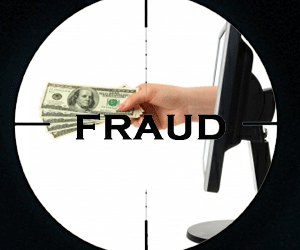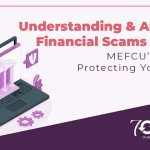Fraud can happen in a number of ways, but is most commonly linked to identity theft when someone obtains personal information, such as credit card information or Social Security number. The Federal Trade Commission estimates that 9 million Americans suffer from criminal fraud cases, such as identity theft, annually.* While this is only 3% of the U.S. population, anyone can be a target of fraud.
Here are some ways you can help to protect yourself from fraud:
Make sure your contact information is accurate on your Members Exchange account. If fraudulent activity is suspected on your account, Members Exchange will contact you to confirm the activity.
- Make sure your phone number and email address are correct on your account.
- Contact us if you are unsure or need to update your information.
Guard your information online. Many people do most of their shopping and banking online. Protect your account information and passwords that you use for these sites.
- Clear your logins and passwords. This is especially important if you’ve been working on a public computer. Change logins and passwords regularly.
- Pay for online purchases with your credit card, which has better guarantees under federal law than your online payment services or your debit card.
- Be alert for phishing, a trick in which spam or pop-ups mimic legitimate banks or businesses to obtain your personal information, which they use to access your accounts. Always verify that you’re on a familiar website with security controls before entering personal data.
Monitor your bank and credit card statements. Check your accounts regularly so you know when something is out of the ordinary. Purchases you didn’t make should be obvious—like purchases in other states or from stores you would never purchase from.
Verify your mailing address with the post office and financial institutions. It is possible for criminals to fill out a change of address form so that delinquent credit notices remain off your paper billing radar.
Monitor your credit report. By law, you’re entitled to a free report every year from each of the three bureaus (Equifax, Experian, and TransUnion). Request one every four months, changing bureaus each time. You can order the report directly through each agency, or at annualcreditreport.com. Use this URL—there are hordes of knockoff sites that will try to charge you for your report and other needless services. Scan it for abnormal activity, such as accounts or credit cards you didn’t open. (And don’t fall prey to faux free credit report advertisements.)*
Shred sensitive documents. Items you should regularly shred: old bank statements, credit card statements or applications, bills, and anything with your personal information. Don’t forget about junk mail, which often includes some of your personal details.
Never wire money to people you don’t know, regardless of how convincing or enticing their story may be. Scammers often win their victims’ confidence with “bait,” such as a work-at-home offer, a great deal on a product for sale, or news that you have won some kind of lottery. Be especially careful with transactions over the Internet, where the other person’s true identity can remain anonymous.
If you’re being pressed to make a decision or send money fast, it’s probably a sign of a scam. Crooks might frighten you with a phone call that a loved one is in trouble and needs cash sent to the caller immediately.
Never give out your bank account or credit card numbers in response to an advertisement or an unsolicited call, text message or e-mail. This information can enable someone to steal money out of your account by a wire transfer, before you have time to realize that the interaction was fabricated by a swindler.










